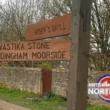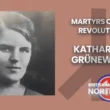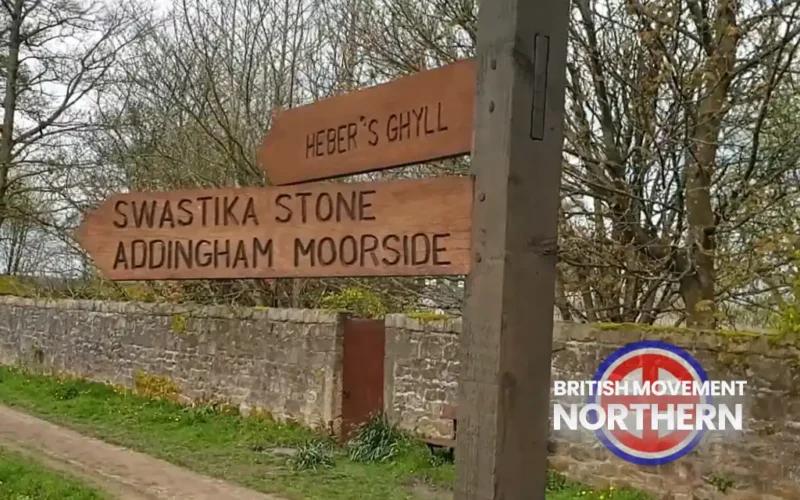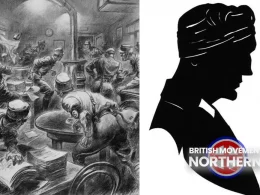High up on the moors above the town of Ilkley in West Yorkshire stands a rock carving that has stood on guard over the land and its people for thousands of years.
The Filfot Stone is thought to be from the early Bronze Age, dating back to about 2,000 BC. It is the only ancient rock art swastika motif in Britain. Similar ones have been found in Italy and Sweden.
It has seen invaders come and go. It was already old when the Romans invaded and conquered the Celtic tribes that inhabited Britain. It has witnessed the fall of the Roman Empire and their replacement by the Saxons, Vikings and lastly the Normans.
The Filfot Stone on Rombalds Moor, Ilkley, is more commonly known as the Swastika Stone. It is thought that the swirling swastika carved into the gritstone outcrop is a symbol relating to the sun.
The design features four spiral arms, each with a cup in the loop and one in the outer ring. Plus, there’s a cup in the centre, creating a cross shape. One of the arms also has a quirky curve that wraps around another cup. The overriding feeling when standing next to the rock is about connection to the natural world.
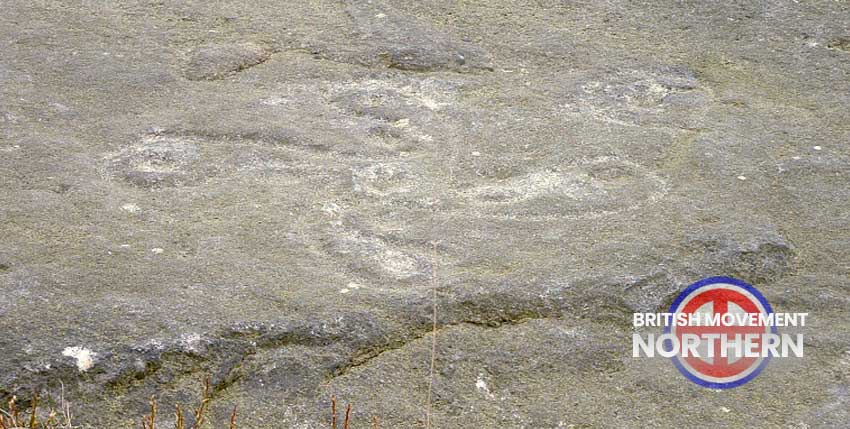
Our 2025 ‘Führer hike’ was again to the ancient stone in Ilkley in West Yorkshire. It was with a feeling of reverence that BM activists from the West and East Ridings of Yorkshire trekked up the steep moor to celebrate the birthday of Adolf Hitler and to pay homage to this ancient rock carving.
Halfway up the moor, we were privileged to see a roe deer warily watching our progress through its home. The deer is native to the UK and widespread across woodland, farmland, grassland and heathland habitats.
On reaching the stone (which is surrounded by iron railings), we stood in silent reflection for a short while, each comrade deep in thought of what could have been and what will be again, of past comrades and the opportunities that await.
Intriguingly, someone had placed a bunch of flowers at the side of the carving; perhaps other National Socialists had been here earlier to celebrate the Führer’s birthday?
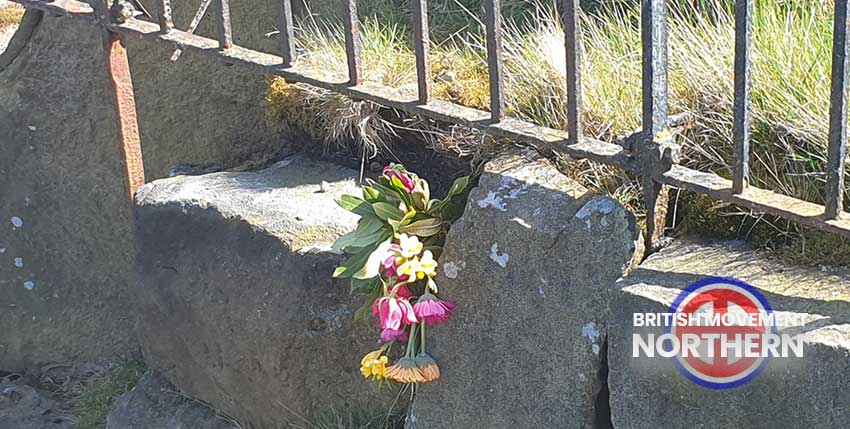
After consuming a range of energy snacks, we made our way down the moor and finished the day by raising our glasses to our spiritual leader in a friendly local hostelry.
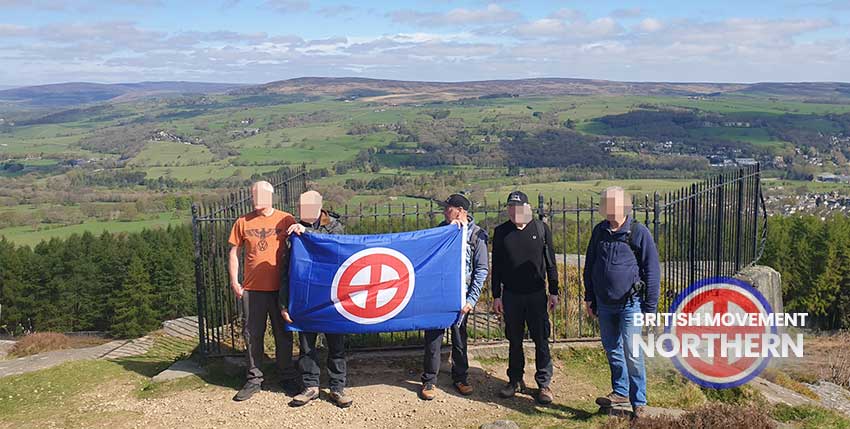
Credits:
All Images: British Movement
The British Movement welcomes articles for possible inclusion on this site from members and supporters across the North of England. Please remember that we have to operate within the laws of this country; we will not include any content that is against the current laws of the United Kingdom. News reports should be topical and relevant to the regions covered by this website.


